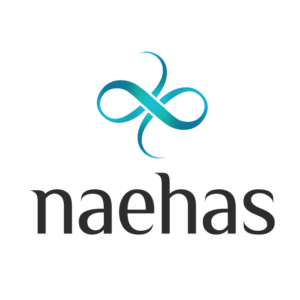Corporate governance is a key focus factor across the financial services spectrum, now more than ever. A virtual trifecta of issues has helped catapult these issues back into the spotlight. First, S&P 500® ESG Index has recently (May 2, 2022) undergone its fourth annual rebalance. Second, the fall-off of cryptocurrency in early May has finservs of all types coming under heightened scrutiny. And, third, as noted in a recent discussion Naehas held with Forrester, they and other consulting firms like McKinsey & Co. are tracking the growing insistence of the new generation of workers that their employers practice corporate citizenship. For myriad reasons, grounded in both management and marketing, those moving toward transparency, compliance and responsibility have a strong competitive edge.
From government regulations to voluntary disclosure practices, Environmental, Social and Governance (ESG) is factoring into strategy sessions and driving daily discussions.
Banks, wealth management firms, fintech startups and insurance companies alike are all grappling with regulations. Whether from government agencies, international bodies, rating agencies or market standards, guidelines driving compliance, reporting, risk mitigation and consumer protections are top of mind for all finserv marketers today.
The power of cloud platforms, purposely-built for highly-regulated industries, is emerging as a game-changer for those marketing professionals and risk mitigation teams mired in the complexities of compliance.
There is no time to wait. Whether a major national bank, community lender, credit union or fintech startup, readying resources to better manage regulatory compliance tops the To Do list. 
 In December 2021, the CFPB called on a handful of those companies to provide information that industry and regulatory experts are seeing as a clarion call for preparing for forthcoming compliance guidelines that will likely be required of that as-yet unregulated financial services sector. Our team offered a series of articles on that development, urging companies to work sooner than later to rev up their regulatory engines, by establishing processes and partners to support compliance and disclosure management. (Check out our Resource Directory)
The Office of the Comptroller of Currency (OCC) is the primary regulator of banks chartered under the National Bank Act and federal savings associations chartered under the Home Owners’ Loan Act. The OCC issues rules and regulations that govern the banks it supervises.
It established and oversees the Community Reinvestment Act (CRA), enacted in 1977. The CRA requires the Federal Reserve and other federal banking regulators to encourage financial institutions to help meet the credit needs of the communities in which they do business, including low- and moderate-income (LMI) neighborhoods
The ISO/IEC 270001 family of standards, also known as the ISO 27000 series, is a series of best practices to help organizations improve their information security. It does this by setting out information security management system (ISMS) requirements. While implementation of ISO 27001 is not mandatory, some countries have published regulations that require certain industries to implement ISO 27001.
As we’ve experienced with our clients, deep industry knowledge establishes a strong basis from which disclosure decisions and platform solutions are determined. Knowing the genesis of such guidelines is useful for anyone operating within companies in highly-regulated industries. At financial industry conferences, virtual and in person, in executive roundtable discussions, and marketing and compliance team planning sessions, the industry is putting in the work of being better informed and better prepared for disclosures. This is evident with those banks and wealth management firms’ voluntary corporate sustainability disclosures. This is valuable and increasingly vital in ever-changing, complex and competitive industries.
Gaining a better understanding of corporate governance, industry perspectives, historical context, emerging technology, and current events helps marketing and risk management teams make informed decisions. Learnings on best practices and innovative solutions drive better outcomes. What’s more is that the collective knowledge bank of resources is being shared to a wider audience of users.
We applaud the deep dive discussions and resources we’re seeing and hearing in the market today. Collectively and collaboratively, these shared insights shed light on innovative technology solutions which automate compliance processes, improve auditability and reduce risk.
In December 2021, the CFPB called on a handful of those companies to provide information that industry and regulatory experts are seeing as a clarion call for preparing for forthcoming compliance guidelines that will likely be required of that as-yet unregulated financial services sector. Our team offered a series of articles on that development, urging companies to work sooner than later to rev up their regulatory engines, by establishing processes and partners to support compliance and disclosure management. (Check out our Resource Directory)
The Office of the Comptroller of Currency (OCC) is the primary regulator of banks chartered under the National Bank Act and federal savings associations chartered under the Home Owners’ Loan Act. The OCC issues rules and regulations that govern the banks it supervises.
It established and oversees the Community Reinvestment Act (CRA), enacted in 1977. The CRA requires the Federal Reserve and other federal banking regulators to encourage financial institutions to help meet the credit needs of the communities in which they do business, including low- and moderate-income (LMI) neighborhoods
The ISO/IEC 270001 family of standards, also known as the ISO 27000 series, is a series of best practices to help organizations improve their information security. It does this by setting out information security management system (ISMS) requirements. While implementation of ISO 27001 is not mandatory, some countries have published regulations that require certain industries to implement ISO 27001.
As we’ve experienced with our clients, deep industry knowledge establishes a strong basis from which disclosure decisions and platform solutions are determined. Knowing the genesis of such guidelines is useful for anyone operating within companies in highly-regulated industries. At financial industry conferences, virtual and in person, in executive roundtable discussions, and marketing and compliance team planning sessions, the industry is putting in the work of being better informed and better prepared for disclosures. This is evident with those banks and wealth management firms’ voluntary corporate sustainability disclosures. This is valuable and increasingly vital in ever-changing, complex and competitive industries.
Gaining a better understanding of corporate governance, industry perspectives, historical context, emerging technology, and current events helps marketing and risk management teams make informed decisions. Learnings on best practices and innovative solutions drive better outcomes. What’s more is that the collective knowledge bank of resources is being shared to a wider audience of users.
We applaud the deep dive discussions and resources we’re seeing and hearing in the market today. Collectively and collaboratively, these shared insights shed light on innovative technology solutions which automate compliance processes, improve auditability and reduce risk.  So many institutions are grappling with the challenges of legacy systems which create lengthy cycle times with error-prone manual processes. That is changing with the emergence, and understanding of, artificial intelligence. Automation and cloud technology are a driving force producing better outcomes. Solutions like those Naehas offers make a compelling case for pivoting from legacy systems to platforms built specifically for financial services. We see it first-hand with clients whose operational efficiencies reduce both risk and costs, while improving processes and allowing teams to be more productive and, as a result, more profitable.
Industry clouds allow our clients the ability to leverage a range of solutions that drive efficient, accurate and consistent disclosures to meet the highest regulatory standards. In the words of Naehas CEO, Rab Govil, “The ROI is immense.”
The industry is ramping up its readiness. Leading firms are understanding the why behind AI. As we’ve seen with clients whose processes and profits have increased measurably, understanding how Artificial Intelligence and Machine Learning work, and finding vendors to drive the process, are both critical to driving enterprise-wide growth.
Automated compliance through cloud platforms reduces errors and mitigates risk. The benefits of automated compliance support a range of functions martech leaders orchestrate, from offer management, intelligent reviews of regulated content, and disclosure management initiatives.
Finserv experts with a clear sense of how regulations have evolved, where they are headed, and how to better manage their risk and their disclosures will have a competitive advantage moving forward.
So many institutions are grappling with the challenges of legacy systems which create lengthy cycle times with error-prone manual processes. That is changing with the emergence, and understanding of, artificial intelligence. Automation and cloud technology are a driving force producing better outcomes. Solutions like those Naehas offers make a compelling case for pivoting from legacy systems to platforms built specifically for financial services. We see it first-hand with clients whose operational efficiencies reduce both risk and costs, while improving processes and allowing teams to be more productive and, as a result, more profitable.
Industry clouds allow our clients the ability to leverage a range of solutions that drive efficient, accurate and consistent disclosures to meet the highest regulatory standards. In the words of Naehas CEO, Rab Govil, “The ROI is immense.”
The industry is ramping up its readiness. Leading firms are understanding the why behind AI. As we’ve seen with clients whose processes and profits have increased measurably, understanding how Artificial Intelligence and Machine Learning work, and finding vendors to drive the process, are both critical to driving enterprise-wide growth.
Automated compliance through cloud platforms reduces errors and mitigates risk. The benefits of automated compliance support a range of functions martech leaders orchestrate, from offer management, intelligent reviews of regulated content, and disclosure management initiatives.
Finserv experts with a clear sense of how regulations have evolved, where they are headed, and how to better manage their risk and their disclosures will have a competitive advantage moving forward.

Clarion Call for Compliance Readiness
Regulatory readiness and operational efficiencies are critical components providing a competitive edge to leading finserv institutions. Those who embrace best practices, leverage innovation and automation on the regulatory front will be best poised to get and stay atop their competitive and complex markets. Of greatest concern to businesses operating in financial services is the ability to manage compliance with accuracy, transparency and auditability. While speed to market is a focus area for all marketing teams, most finserv leaders agree that regulations rule the day. Why? Risk. Mitigating risk is consistently atop the list of top priorities for enterprises which are challenged with being both customer obsessed and compliance obsessed. It is a clear pathway toward any enterprise’s key goals: meeting regulations, expanding relationships, and driving revenue. Earlier this year, we published a series of articles which provided information and insights into goals and guidelines around regulations, reporting and related initiatives faced by marketing operations teams, compliance managers and legal and risk directors. Certain that these issues are going to become only more important for financial services institutions of all makes and models, we – as to our collaborative partners – strongly encourage those working in these sectors to become better acquainted with the fundamentals, and the technology that supports regulated and voluntary compliance. First, a look at the history behind compliance reporting guidelines, and a review of entities impacting them in the United States and globally.Regulations Past, Present, Future
Governance, risk and compliance (GRC) issues, and the growing emphasis on ESG criteria are lighting a fire under those charged with compliance reporting to find better ways to manage their compliance systems. From where do guidelines for compliance come? A range of regulatory guidelines directs the compliance reporting processes, emerging from multiple entities within and outside of the United States.U.S. Governmental Bodies and Disclosure Guidelines
Chief among the domestic disclosure standards and practices are the regulations imposed by U.S. governmental agencies and oversight bodies. Some of those are the Securities and Exchange Commission (SEC), Department of Justice (DOJ) and its Best Interest Disclosure Act, as well as significant consumer protection laws passed by Congress to protect consumers, such as the Truth in Lending Act, Credit Card Accountability Responsibility and Disclosure Act, and the Schumer Box, among others. In July 2010, Congress passed and President Obama signed the Dodd-Frank Wall Street Reform and Consumer Protection Act. Often referred to as the Dodd-Frank Act, the law created multiple enforcement entities, including the Federal Insurance Office (FIO), born out of the Act’s TItle V. The director of the FIO is appointed by the Secretary of the U.S. Treasury Department. That Act also created the Consumer Financial Protection Bureau (CFPB), which has been increasing its oversight of financial institutions, particularly Buy Now, Pay Later businesses. In December 2021, the CFPB called on a handful of those companies to provide information that industry and regulatory experts are seeing as a clarion call for preparing for forthcoming compliance guidelines that will likely be required of that as-yet unregulated financial services sector. Our team offered a series of articles on that development, urging companies to work sooner than later to rev up their regulatory engines, by establishing processes and partners to support compliance and disclosure management. (Check out our Resource Directory)
The Office of the Comptroller of Currency (OCC) is the primary regulator of banks chartered under the National Bank Act and federal savings associations chartered under the Home Owners’ Loan Act. The OCC issues rules and regulations that govern the banks it supervises.
It established and oversees the Community Reinvestment Act (CRA), enacted in 1977. The CRA requires the Federal Reserve and other federal banking regulators to encourage financial institutions to help meet the credit needs of the communities in which they do business, including low- and moderate-income (LMI) neighborhoods
The ISO/IEC 270001 family of standards, also known as the ISO 27000 series, is a series of best practices to help organizations improve their information security. It does this by setting out information security management system (ISMS) requirements. While implementation of ISO 27001 is not mandatory, some countries have published regulations that require certain industries to implement ISO 27001.
As we’ve experienced with our clients, deep industry knowledge establishes a strong basis from which disclosure decisions and platform solutions are determined. Knowing the genesis of such guidelines is useful for anyone operating within companies in highly-regulated industries. At financial industry conferences, virtual and in person, in executive roundtable discussions, and marketing and compliance team planning sessions, the industry is putting in the work of being better informed and better prepared for disclosures. This is evident with those banks and wealth management firms’ voluntary corporate sustainability disclosures. This is valuable and increasingly vital in ever-changing, complex and competitive industries.
Gaining a better understanding of corporate governance, industry perspectives, historical context, emerging technology, and current events helps marketing and risk management teams make informed decisions. Learnings on best practices and innovative solutions drive better outcomes. What’s more is that the collective knowledge bank of resources is being shared to a wider audience of users.
We applaud the deep dive discussions and resources we’re seeing and hearing in the market today. Collectively and collaboratively, these shared insights shed light on innovative technology solutions which automate compliance processes, improve auditability and reduce risk.
In December 2021, the CFPB called on a handful of those companies to provide information that industry and regulatory experts are seeing as a clarion call for preparing for forthcoming compliance guidelines that will likely be required of that as-yet unregulated financial services sector. Our team offered a series of articles on that development, urging companies to work sooner than later to rev up their regulatory engines, by establishing processes and partners to support compliance and disclosure management. (Check out our Resource Directory)
The Office of the Comptroller of Currency (OCC) is the primary regulator of banks chartered under the National Bank Act and federal savings associations chartered under the Home Owners’ Loan Act. The OCC issues rules and regulations that govern the banks it supervises.
It established and oversees the Community Reinvestment Act (CRA), enacted in 1977. The CRA requires the Federal Reserve and other federal banking regulators to encourage financial institutions to help meet the credit needs of the communities in which they do business, including low- and moderate-income (LMI) neighborhoods
The ISO/IEC 270001 family of standards, also known as the ISO 27000 series, is a series of best practices to help organizations improve their information security. It does this by setting out information security management system (ISMS) requirements. While implementation of ISO 27001 is not mandatory, some countries have published regulations that require certain industries to implement ISO 27001.
As we’ve experienced with our clients, deep industry knowledge establishes a strong basis from which disclosure decisions and platform solutions are determined. Knowing the genesis of such guidelines is useful for anyone operating within companies in highly-regulated industries. At financial industry conferences, virtual and in person, in executive roundtable discussions, and marketing and compliance team planning sessions, the industry is putting in the work of being better informed and better prepared for disclosures. This is evident with those banks and wealth management firms’ voluntary corporate sustainability disclosures. This is valuable and increasingly vital in ever-changing, complex and competitive industries.
Gaining a better understanding of corporate governance, industry perspectives, historical context, emerging technology, and current events helps marketing and risk management teams make informed decisions. Learnings on best practices and innovative solutions drive better outcomes. What’s more is that the collective knowledge bank of resources is being shared to a wider audience of users.
We applaud the deep dive discussions and resources we’re seeing and hearing in the market today. Collectively and collaboratively, these shared insights shed light on innovative technology solutions which automate compliance processes, improve auditability and reduce risk.  So many institutions are grappling with the challenges of legacy systems which create lengthy cycle times with error-prone manual processes. That is changing with the emergence, and understanding of, artificial intelligence. Automation and cloud technology are a driving force producing better outcomes. Solutions like those Naehas offers make a compelling case for pivoting from legacy systems to platforms built specifically for financial services. We see it first-hand with clients whose operational efficiencies reduce both risk and costs, while improving processes and allowing teams to be more productive and, as a result, more profitable.
Industry clouds allow our clients the ability to leverage a range of solutions that drive efficient, accurate and consistent disclosures to meet the highest regulatory standards. In the words of Naehas CEO, Rab Govil, “The ROI is immense.”
The industry is ramping up its readiness. Leading firms are understanding the why behind AI. As we’ve seen with clients whose processes and profits have increased measurably, understanding how Artificial Intelligence and Machine Learning work, and finding vendors to drive the process, are both critical to driving enterprise-wide growth.
Automated compliance through cloud platforms reduces errors and mitigates risk. The benefits of automated compliance support a range of functions martech leaders orchestrate, from offer management, intelligent reviews of regulated content, and disclosure management initiatives.
Finserv experts with a clear sense of how regulations have evolved, where they are headed, and how to better manage their risk and their disclosures will have a competitive advantage moving forward.
So many institutions are grappling with the challenges of legacy systems which create lengthy cycle times with error-prone manual processes. That is changing with the emergence, and understanding of, artificial intelligence. Automation and cloud technology are a driving force producing better outcomes. Solutions like those Naehas offers make a compelling case for pivoting from legacy systems to platforms built specifically for financial services. We see it first-hand with clients whose operational efficiencies reduce both risk and costs, while improving processes and allowing teams to be more productive and, as a result, more profitable.
Industry clouds allow our clients the ability to leverage a range of solutions that drive efficient, accurate and consistent disclosures to meet the highest regulatory standards. In the words of Naehas CEO, Rab Govil, “The ROI is immense.”
The industry is ramping up its readiness. Leading firms are understanding the why behind AI. As we’ve seen with clients whose processes and profits have increased measurably, understanding how Artificial Intelligence and Machine Learning work, and finding vendors to drive the process, are both critical to driving enterprise-wide growth.
Automated compliance through cloud platforms reduces errors and mitigates risk. The benefits of automated compliance support a range of functions martech leaders orchestrate, from offer management, intelligent reviews of regulated content, and disclosure management initiatives.
Finserv experts with a clear sense of how regulations have evolved, where they are headed, and how to better manage their risk and their disclosures will have a competitive advantage moving forward.






